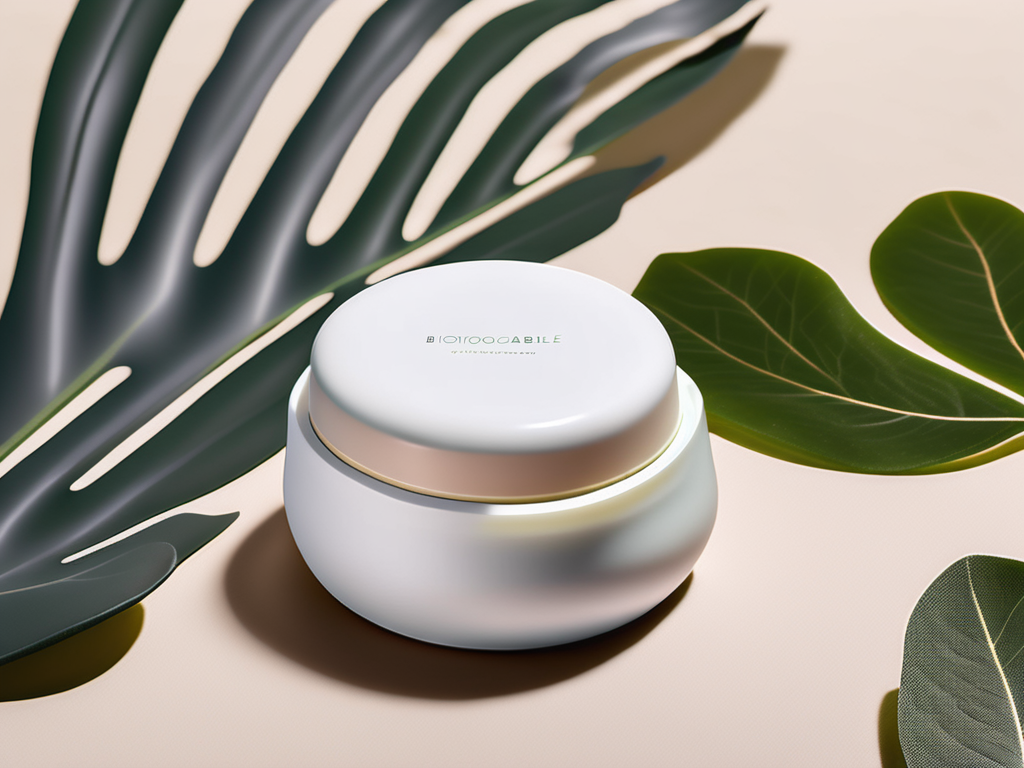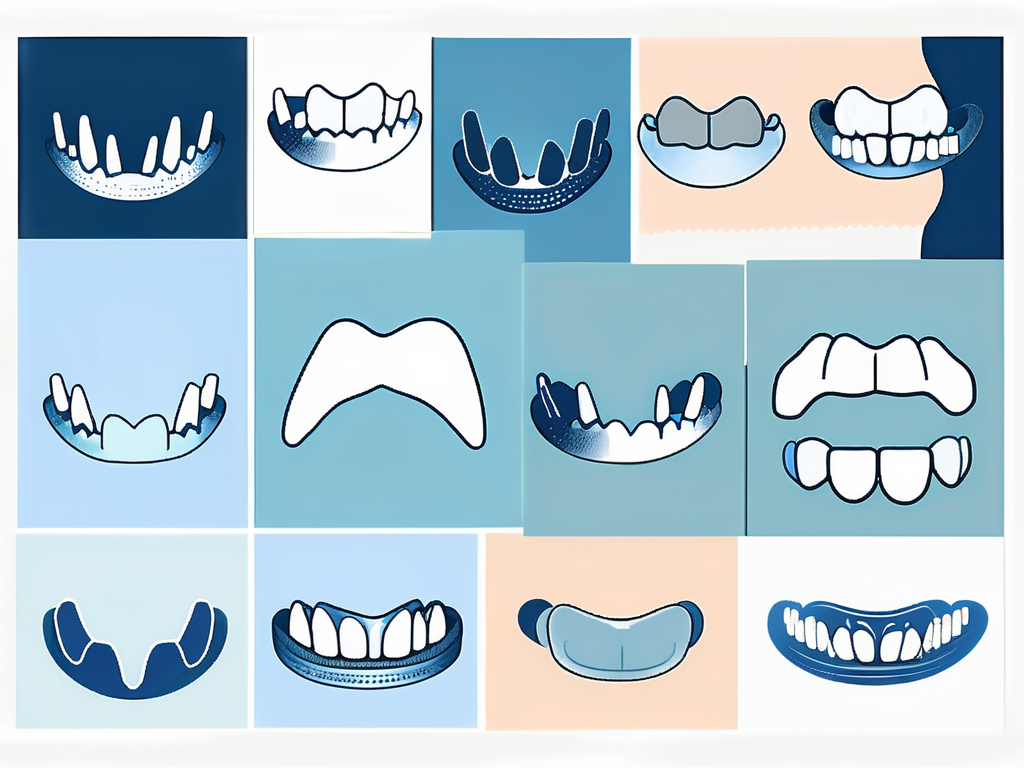Mouth guards are essential dental appliances that can protect your teeth from various issues while you sleep. However, not all mouth guards are created equal. For individuals with sensitivities or allergies, it is crucial to consider biocompatible and hypoallergenic options. In this article, we will explore the importance of biocompatibility and hypoallergenic properties in mouth guards, the common dental issues addressed by these devices, the materials used in their production, how to evaluate different mouth guard options, and how to properly care for them.
Understanding Biocompatibility and Hypoallergenic Properties
Before delving into the world of biocompatible and hypoallergenic mouth guards, it's important to understand what these terms mean. Biocompatibility refers to the compatibility of a material with living tissues, ensuring it does not irritate or harm the body. Hypoallergenic properties, on the other hand, pertain to substances that have a low potential for causing allergic reactions.

Both biocompatibility and hypoallergenic properties are essential considerations when selecting a mouth guard. By choosing materials that are compatible with your body and minimize the risk of allergic reactions, you can ensure optimal comfort and safety.
Definition of Biocompatibility
Biocompatibility is the ability of a material to perform its desired function within a specific application without causing any harmful effects to the living tissues or the body as a whole. In dental applications, biocompatible materials are used to minimize the risk of adverse reactions or complications.
A mouth guard that is biocompatible can be worn without causing irritation, discomfort, or any negative impact on your oral health. It promotes healthy oral tissues and enhances the overall effectiveness of the device.
When it comes to dental materials, biocompatibility is a crucial factor to consider. The mouth is a sensitive area, and any material that comes into contact with it should be carefully chosen to ensure it does not cause any harm. Biocompatible materials undergo rigorous testing to ensure their safety and effectiveness, giving you peace of mind when using a mouth guard made from such materials.
Importance of Hypoallergenic Materials
Hypoallergenic materials are designed to minimize the risk of allergic reactions in individuals with sensitivities or allergies. When it comes to mouth guards, hypoallergenic properties in the materials used can help prevent skin rashes, itching, swelling, and other adverse allergic responses.
Opting for a hypoallergenic mouth guard is particularly crucial for those with known allergies or sensitivities to certain substances. By choosing hypoallergenic materials, you can avoid potential discomfort and complications, ensuring a comfortable night's sleep.
One common hypoallergenic material used in mouth guards is medical-grade silicone. This material is known for its biocompatibility and hypoallergenic properties, making it an excellent choice for individuals with sensitive skin or allergies. Medical-grade silicone is soft, flexible, and gentle on the oral tissues, providing a comfortable fit while minimizing the risk of allergic reactions.
Another hypoallergenic material commonly used in mouth guards is polypropylene. This material is known for its durability and resistance to chemical reactions, making it a safe option for those with allergies or sensitivities. Polypropylene mouth guards are lightweight, easy to clean, and offer excellent protection against teeth grinding or clenching.
The Need for Mouth Guards
Mouth guards are dental appliances that provide protection and relief from various dental issues that occur during sleep. They are commonly prescribed for individuals who grind their teeth (bruxism) or clench their jaws while sleeping.

Common Dental Issues Addressed by Mouth Guards
Bruxism, a frequent dental concern, is characterized by the grinding or clenching of teeth during sleep. This involuntary habit often leads to worn-down teeth, jaw pain, headaches, and sleep disruptions. Mouth guards act as a barrier, preventing contact between the upper and lower teeth, thereby reducing the impact of grinding and clenching.
Additionally, mouth guards can help alleviate Temporomandibular Joint Disorder (TMJ), a condition that causes pain and dysfunction in the jaw joint and surrounding muscles. By correcting the jaw alignment and reducing stress on the joint, mouth guards alleviate symptoms associated with TMJ.
How Mouth Guards Protect Your Teeth
Wearing mouth guards provides a physical barrier between the upper and lower teeth, absorbing the forces created by grinding and clenching. This protective measure helps prevent tooth wear, fractures, and chipping, ultimately preserving your natural dentition.
Furthermore, mouth guards also help distribute bite forces more evenly, reducing strain on the jaw joints and muscles. By promoting a balanced bite, they help alleviate muscle tension and discomfort associated with TMJ disorders.
But did you know that mouth guards can also have additional benefits for your oral health? One of the lesser-known advantages of wearing mouth guards is their ability to protect dental restorations such as crowns, bridges, and veneers. These restorations are designed to enhance the appearance and functionality of your teeth, but they can be vulnerable to damage caused by teeth grinding and clenching. Mouth guards provide an extra layer of protection, ensuring the longevity and durability of your dental restorations.
Moreover, mouth guards can help improve your overall sleep quality. Bruxism and TMJ disorders often lead to sleep disruptions and even sleep apnea in severe cases. By reducing the impact of teeth grinding and clenching, mouth guards promote a more restful sleep, allowing you to wake up feeling refreshed and rejuvenated.
Materials Used in Mouth Guard Production
The materials utilized in the production of mouth guards play a vital role in their effectiveness, comfort, and safety. Understanding the properties of these materials is crucial when selecting a biocompatible and hypoallergenic mouth guard.
Common Materials and Their Properties
Mouth guards can be made from various materials, including hard acrylic, soft acrylic, and dual laminate. Hard acrylic is durable, easy to clean, and provides excellent protection against teeth grinding and clenching. Soft acrylic, on the other hand, offers greater comfort due to its flexibility, making it suitable for individuals with a sensitive bite or those experiencing jaw pain. Dual laminate combines the benefits of both hard and soft acrylic, providing durability and comfort.
Biocompatible and Hypoallergenic Materials in Detail
Biocompatible and hypoallergenic mouth guards are typically made from medical-grade silicone or BPA-free materials. Medical-grade silicone is highly biocompatible, chemically stable, and resistant to bacteria and fungi growth. It offers excellent flexibility and adapts well to the contours of your teeth.
BPA-free materials, such as certain types of dental plastics, eliminate the risk of exposure to bisphenol A (BPA), a compound commonly found in many consumer products. BPA is a potential endocrine disruptor, and using BPA-free materials ensures the mouth guard is free from this potentially harmful substance.
Evaluating Different Mouth Guard Options
When considering mouth guards, it's important to evaluate various options to ensure you choose the most suitable one for your needs. Two primary categories of mouth guards to consider are over-the-counter (OTC) options and custom-made mouth guards.

Over-the-Counter vs. Custom-Made Mouth Guards
OTC mouth guards are readily available in drugstores or online marketplaces. They come in standard sizes and rely on a "boil-and-bite" process to achieve a semi-custom fit. While OTC options are more affordable and convenient, they may not provide the same level of comfort, effectiveness, and durability as custom-made mouth guards.
On the other hand, custom-made mouth guards, fabricated by dental professionals, offer a precise fit tailored to your unique dental anatomy. They are crafted from dental impressions taken by your dentist, ensuring maximum comfort and protection. Custom-made mouth guards may be more expensive, but their superior quality and performance make them a worthwhile investment.
Factors to Consider When Choosing a Mouth Guard
Several factors should be considered when choosing a mouth guard:
- Type and severity of dental issues: Consider the extent of teeth grinding, jaw clenching, or any existing dental conditions that require specific mouth guard features.
- Comfort and fit: Choose a mouth guard that provides a comfortable fit and does not impede your ability to breathe or speak properly.
- Material composition: Pay attention to the material used, ensuring it is biocompatible and hypoallergenic.
- Durability and longevity: Evaluate the durability and expected lifespan of the mouth guard to make a cost-effective choice.
Caring for Your Biocompatible and Hypoallergenic Mouth Guard
Proper care and maintenance are crucial for maximizing the lifespan and functionality of your biocompatible and hypoallergenic mouth guard.
Cleaning and Maintenance Tips
To keep your mouth guard clean and hygienic:
- Rinse it with cool water before and after each use.
- Regularly brush it with a soft toothbrush and mild soap or non-abrasive toothpaste.
- Avoid using hot water or harsh chemicals that can damage the mouth guard.
- Store it in a clean, dry container when not in use.
Ensuring Longevity of Your Mouth Guard
To ensure the longevity of your mouth guard:
- Avoid excessive force or bending that may deform or fracture the mouth guard.
- Replace the mouth guard as recommended by your dentist or sooner if signs of wear and tear are noticeable.
- Visit your dentist regularly for check-ups and professional cleaning of your mouth guard.
By following these cleaning and maintenance tips, you can extend the lifespan of your biocompatible and hypoallergenic mouth guard, ensuring its effectiveness and usability for an extended period.
In conclusion, selecting biocompatible and hypoallergenic mouth guards can significantly enhance your sleep quality, protect your teeth from damage, and alleviate various dental issues. Understanding the importance of biocompatibility and hypoallergenic properties, evaluating different mouth guard options, and practicing proper care and maintenance will ensure a comfortable and long-lasting experience. Take the necessary steps to invest in your dental health and enjoy the benefits that biocompatible and hypoallergenic mouth guard options offer.













